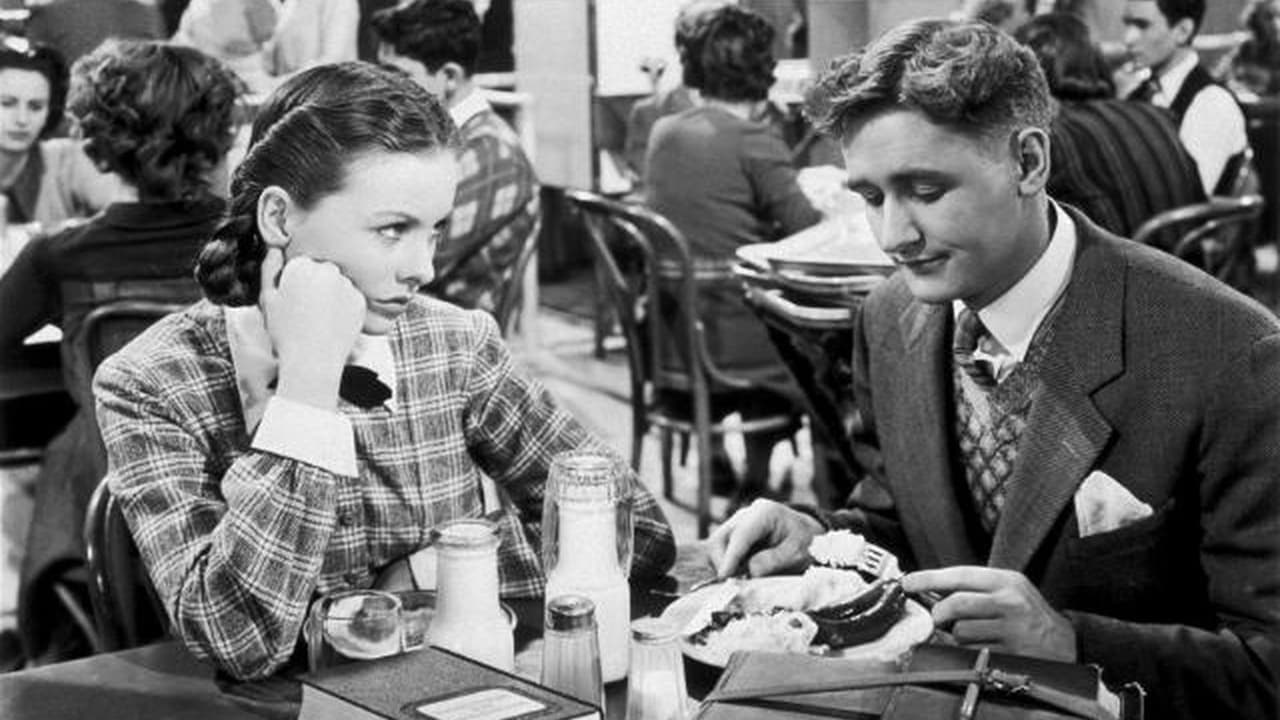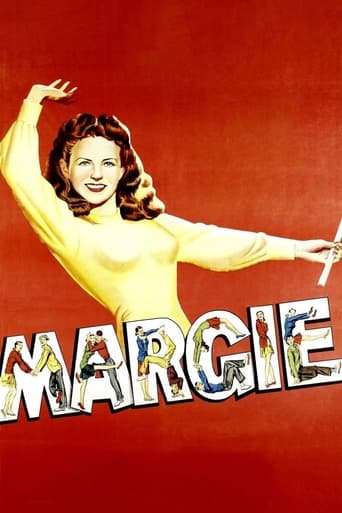

This is a great movie about being a high school senior in the 1920s. Jeanne Craig captures the emotional highs and lows experienced at that age. Conrad Janis, who played the record producer in the Buddy Holly Story, looks so young and smart aleck in Margie. Alan Young, who was Wilbur in Mr. Ed, looks so geeky and smitten with puppy love over Margie. Esther Dale, who plays Margie's grandmother, is a strong woman and former suffragette with common sense ideas about life.However nowadays we would frown on a romance between a high school teacher and a student. But world famous historian Will Durant married Ariel, his high school student in 1913. They co-authored many books and were married for over 60 years.
... View MoreWhen this film begins, you see Margie (Jeanne Crain) with her teenage daughter. She begins to reminisce and soon the film jumps back to 1928 when Margie was in high school. While bright and capable, Margie is a bit of a klutz. She's also smitten with her next-door neighbor's boyfriend, Johnny (Conrad Janis of all people!), but I agree with Margie's grandma...he's a bit of an idiot. She's also smitten with her French teacher, Mr. Fontayne (Glenn Langan) and folks all around Margie seem to be encouraging this! Think about it....a girl of perhaps 16 or 17 being encouraged by her friends, family and even faculty to date the French Teacher!! Things really, really have changed as today schools would fire any teacher who began making overtures towards one of their students...and yet in this film it's quite acceptable and even normal. Additionally, Roy (Alan Young) is quite smitten by her. So who will the lucky guy be?All in all, this slice of life film is expertly done...but also creepy as can be! They also WAY overdid the bloomers bit! Changing times and changing standards make this one a difficult film to love, though everyone associated with the picture did a very nice job with this one.
... View MoreI watched this movie with my mother as a child and have loved it ever since. The fact that it's not available on Video or DVD is a shame. I keep my eyes peeled for it on TV but have not come across it in years. The song "A cup of coffee, a sandwich and you" sticks with me and I find myself humming it occasionally. This is one of those movies where things like that song and the underwear scenesk stick with you forever. Jeanne Crain is wonderful and is a young actress from this era of film-making that I adore. She also happens to be in another of my favorite movies "Meet me in St. Louis". Her appeal is lasting and stands the test of time.
... View MoreOne of my favorite movies from the 1940s. Crain plays Margie with such sweet, believable, awkward conviction; her goofily repressed homelife & "bad girl" best friend & various boyfriends round out this story in an unforgettable way. The music is poignant & tuneful & perfectly suited to the storyline, the humor subtle & sly & ever-so-slightly off color, in a way that is completely inoffensive. A joy of a movie!
... View More